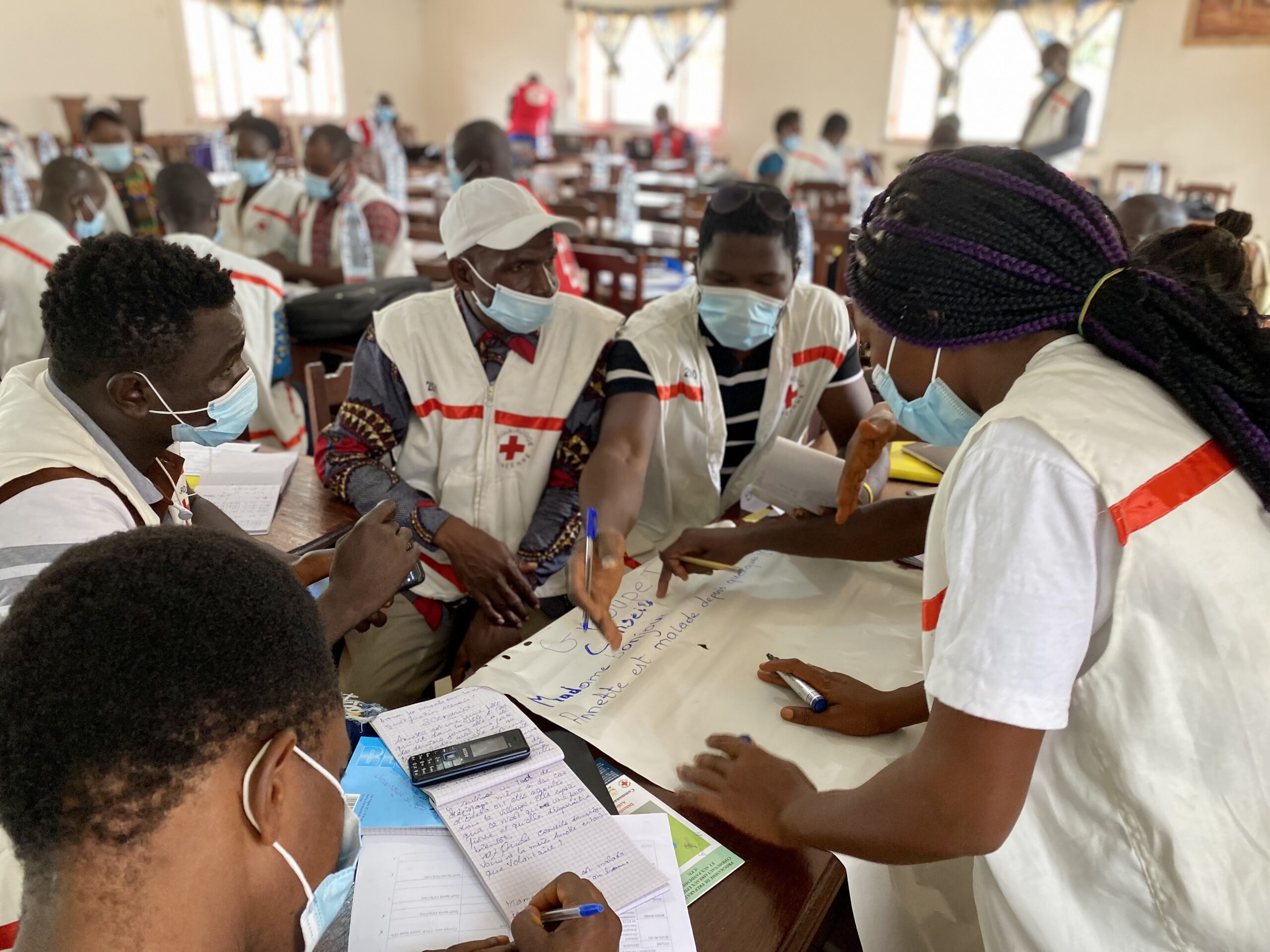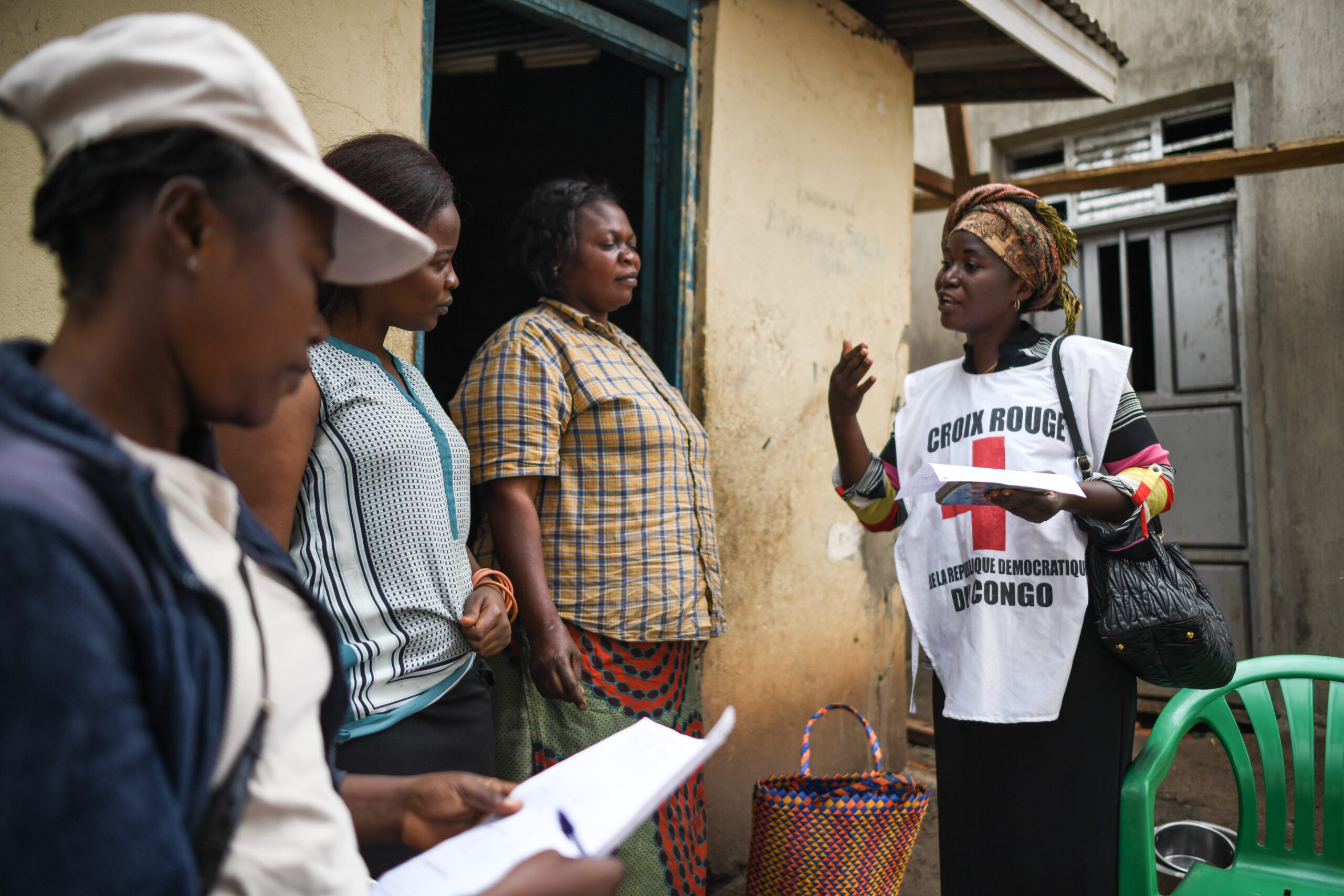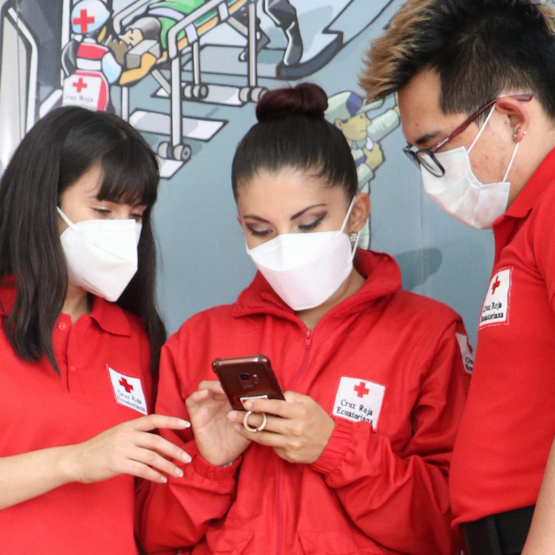Community Engagement and Accountability
Community engagement is essential to effective disaster preparedness and response efforts. Evidence shows that accounting for local knowledge, practices, and contexts helps reduce disaster risks and strength resilience. True collaboration between crisis-affected communities, humanitarian organizations and, where possible, within and between communities enables affected people to meet their needs, address their vulnerabilities and build on their pre-existing capacities. In this context, IFRC’s community engagement and accountability (CEA) commitment is geared towards putting people and communities at the center of Red Cross and Red Crescent programming and operations.

The Red Cross and Red Crescent Approach to Community Engagement
For a long, vulnerable or affected communities have been viewed as recipients of humanitarian aid and development programs rather than active participants in their own future and recovery. But evidence, experience and common sense show that when communities play an active role in designing and managing our programs and operations, the outcomes are more effective and more sustainable. Despite increased awareness and commitments to accountability, there are still significant gaps in how aid organizations engage communities.
Community engagement and accountability (CEA) is a way of working that recognizes and values all community members as equal partners, whose diverse needs, priorities, and preferences guide RCRC programming and operations. CEA encompasses a set of activities that integrate meaningful community participation, open and honest communication, and mechanisms to listen to and act on feedback throughout the program cycle.
CEA is the process of and commitment to providing timely, relevant and actionable life-saving and life-enhancing information to communities. It is about using the most appropriate communication approaches to listen to communities’ needs, feedback and complaints, ensuring they can actively participate and guide Red Cross Red Crescent actions. CEA supports those involved in programs and operations to adopt innovative approaches to better understand and engage with people and communities and help them address unhealthy and unsafe practices. It maximizes the Red Cross Red Crescent’s unique relationship with the community to help them speak out about the issues that affect them and influence decision and policy-makers to implement positive changes.
Adopting a more systematic approach to CEA contributes to improved accountability to communities, which builds acceptance and trust and supports more sustainable program outcomes. Ultimately, this helps communities take an active role in building long-term resilience by enabling them to become more knowledgeable, skilled, connected and to bring about the behavior and social changes needed to address risks and underlying vulnerabilities

Key principles of Community Engagement and Accountability
Community participation and feedback
CEA supports those involved in our programs and operations to share honest, timely and accessible information with communities about who we are and what we are doing, find ways to engage them in guiding program design and delivery, and to set up systems for responding and acting on feedback, questions and complaints.
Information as aid
During a disaster or conflict, people need information as much as water, food, medicine or shelter. CEA supports those involved in our programs and operations to share timely, actionable and potentially lifesaving information with communities quickly, efficiently and at large-scale, using systems such as SMS, social media or radio broadcasts.
Behavior and social change communication
CEA helps behavior and social change programs to gain an insight into the perceptions and behaviors of different groups, and to develop engaging and targeted messages. It also provides innovative and participatory communication approaches that support communities to adopt safer and healthier practices.
Social Media for Behaviour Change (SM4BC) Toolkit
The toolkit focuses on using social media to encourage behavior change in the context of disaster preparedness and risk reduction.
Evidence-based advocacy
Community members are experts on the challenges that affect them and their solutions, but they can find it difficult to make their voices heard by the relevant authorities or organizations. CEA helps create spaces for communities to speak out about the issues that affect them and make their voices heard to influence decision-makers to take action.

